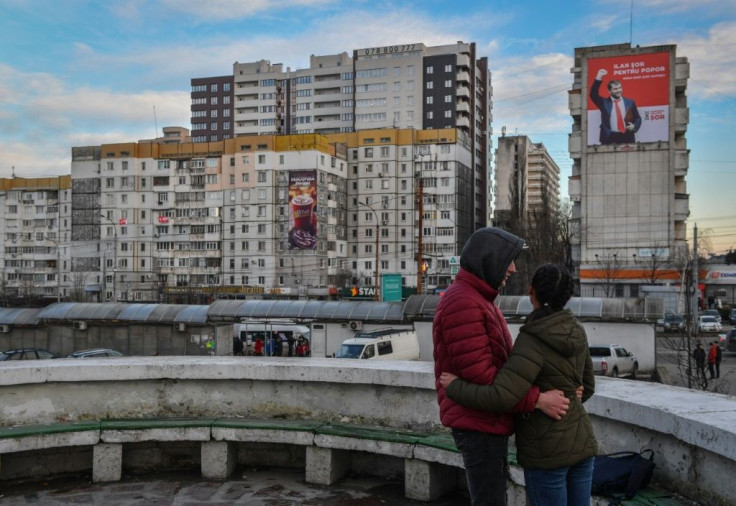Five Things To Know About Moldova
Ex-Soviet Moldova, which holds the second round of its presidential election Sunday, is landlocked between Ukraine and EU member Romania, with which it shares a common language.
One of Europe's least visited countries, it is known for vineyards and Orthodox monasteries. A frozen conflict over the mainly Russian-speaking Transnistria breakaway region is a key political issue.
Moldovan President Igor Dodon, who is seeking re-election, takes a pro-Moscow stance while key opponent Maia Sandu wants to join the European Union, with which Moldova has signed an Association Agreement.
In the first round of the presidential race earlier this month, 48-year-old Sandu won a surprise victory over Dodon with polls predicting a tight race in the second round vote.
That duality reflects a complex history and a polarised society. The country was part of the Ottoman Empire for centuries, then under Russian rule and then part of Romania before becoming the Soviet republic of Moldavia in 1940. It became independent from the USSR in 1991 and was renamed Moldova.
Moldova's main language is Romanian. Russian is also quite widely spoken and many Moldovans work in the EU and Russia. The minority Turkish population speak the Gagauz language, listed as endangered by UNESCO.
Moldova is one of eastern Europe's poorest countries. According to the World Bank, in 2020 the country had a gross domestic product per capita of $3,395 -- just over a quarter of that of Romania.
The economy relies in large part on remittances sent by people working abroad, but this has caused the working-age population to fall sharply.
Meanwhile, Moldova has one of the lowest employment rates in Europe, particularly among its Roma population.

The climate is ideal for agriculture and particularly vineyards. The wine industry is a major economic sector, exporting 85 percent of output to Poland, Romania, the Czech Republic, Russia and China, according to government data.
Russia has periodically restricted imports of Moldovan wine and produce during periods of political tensions, however.
The country is pitching wine tours as a way to attract more visitors, and celebrated National Wine Day on the weekend of October 3-4 this year.
Overall tourism numbers are going up, but they still remain low, with the country receiving just 160,000 visitors in 2018, according to the United Nations World Tourism Organization.
The Russia-backed breakaway region of Transnistria -- also known as Transdniestr and in Russian Pridnestrovye -- is one of the most complex issues for the country of 3.5 million people.
Russia stations troops in the Russian-speaking region which broke away after a brief civil war following the collapse of the USSR in 1991 and is not internationally recognised.
Moscow helps prop up the region, which borders Ukraine and has a population of around 500,000 people. Its currency is called the ruble.
Moldova's identity as one of the least-known countries in Europe has prompted authors to create fictional nations with similar names -- Belgian cartoon character Tintin visited a place called Syldavia, while a group of Australian comedians wrote a parody travel guide to a generic eastern European country called "Molvania."
British comedian Tony Hawks wrote a book called "Playing the Moldovans at Tennis" about his bid to win a bet that he could beat the entire Moldovan football team on a court.
© Copyright AFP 2024. All rights reserved.



















